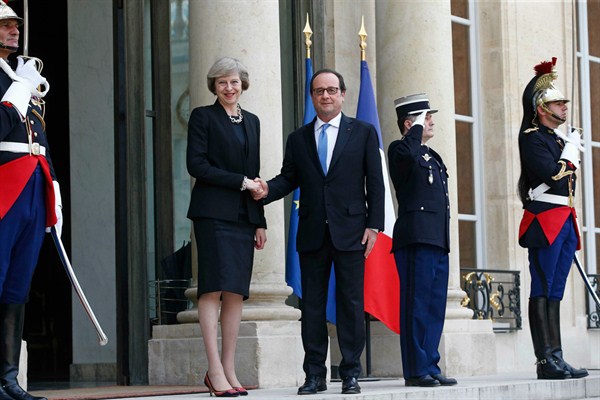The ongoing uncertainty over Brexit has raised many questions in Europe, starting with when negotiations between the European Union and the U.K. will even begin. But beyond the specifics of the negotiations, there is uncertainty over what Brexit will mean for European defense policy, a topic that has become all the more important now that U.S. President Donald Trump, who has questioned the United States’ commitment to NATO, is in office.
In the wake of Brexit, officials in Brussels have called for stronger defense integration across the bloc, floated renewed plans for a permanent EU military headquarters, and proposed more than $5 billion for defense funding and research. While many agree that stronger cooperation in defense is long overdue for the EU, the fear of the U.K. leaving the bloc has prompted several states to push for accelerated defense integration.
But the fear of Britain abandoning European defense is overblown, not only due to its membership in NATO, but also due to the U.K.’s military and defense partnership with France. Thanks to the Lancaster House treaties, signed between Paris and London in 2010, bilateral defense ties have never been stronger. The treaties allow for sharing military equipment, creating joint facilities, pooling defense industries, cooperating on computer-simulated nuclear weapons tests, and increasing exchanges between British and French armed forces. Ties had been improving between the two countries for years, and the treaties formalized the growing defense and security relationship.

